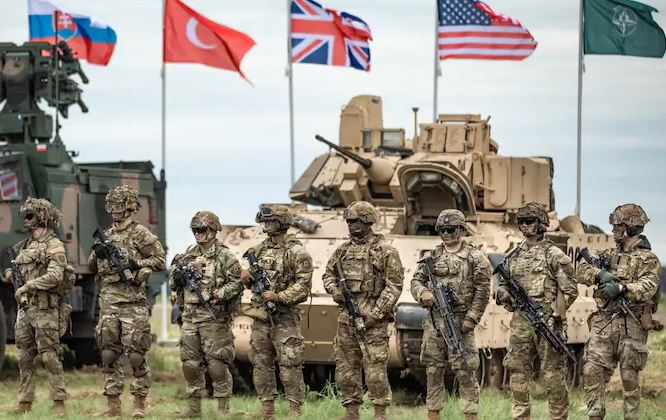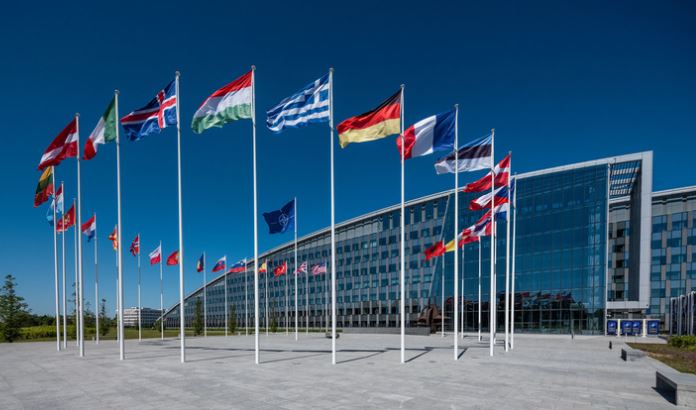Russia’s three year bombardment and annexation of large portion of Ukraine signals that World War III may be possible under the current situation.
The NATO alliance was part of the postwar architecture of multilateral organizations – largely designed by the U.S. – whose aim was preventing a third world war and building global economic stability.
“The fundamental reason” for the alliance’s unparalleled success is that “the leaders in Europe and America – having lived through two world wars – realized that the best and most practical way to prevent a third was not for America just to join in addressing a war once one started, but for America to be in Europe to prevent a war from ever starting,” says Ivo Daalder, U.S. ambassador to NATO under President Barack Obama.
“At the very core of this success is trust,” he says. “NATO is not just a treaty or a legal obligation. It’s the confidence each member has in the highly elusive and difficult-to-define element of trust.”
There’s trust in fellow members, he adds, “but also a trust that America would do something quite abnormal for a country to do, which is to defend them even when American territory is not directly affected or directly threatened.”
Many trans-Atlantic security analysts and diplomats caution that the celebrations on 4, April and July must be tempered by recognition of the significant challenges the alliance faces, some of which may be self-inflicted.
First among them are Russia’s war in Ukraine and NATO’s failure at one of its core purposes, which was to prevent the return of war to Europe.

Other stark challenges loom: growing disenchantment with multilateral management of global affairs, generally, and with the U.S.-led postwar architecture; and rising nationalist “America First” sentiments in the U.S. embodied by former President Donald Trump.
Russia’s invasion of Ukraine has united NATO and given it a renewed sense of purpose, he says, “but that does not alter the reality of some big looming questions” that will define the future of trans-Atlantic security agreements.
Chief among those questions, Dr. Lesser says, is “the fundamentally shifting political atmosphere in the United States concerning alliances and the U.S. role in the world.” Perhaps of equal importance, he adds, is the “dismantling of the broader security
infrastructure that was part of NATO’s strength,” including arms control and strategic dialogues with adversaries, “to a point where it is virtually absent today.”
The hand-wringing over signs of weakening U.S. support for NATO – and for the U.S. maintaining its leadership role – intensified in February when Mr. Trump, at a campaign rally in South Carolina, cast doubt on whether, if reelected president, he would honor Article 5.



















